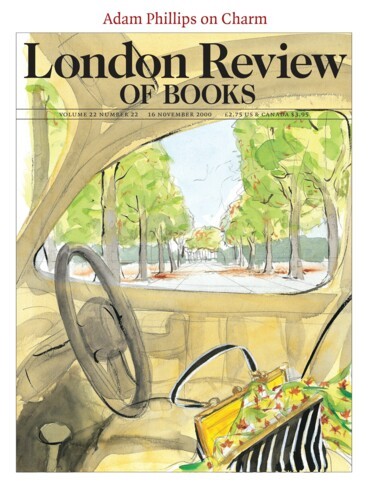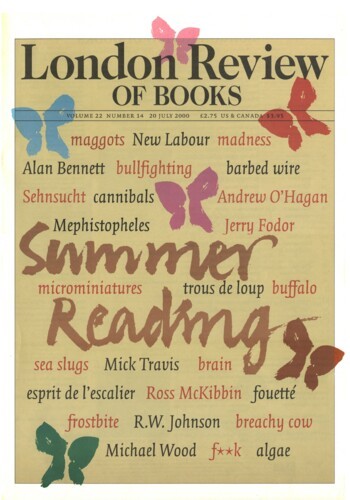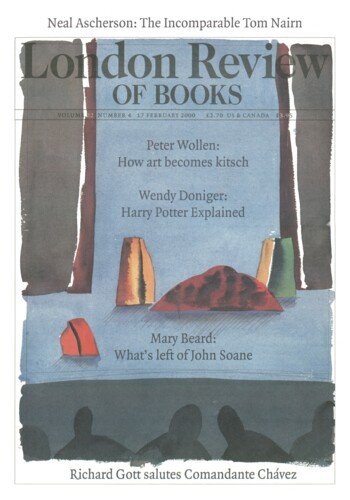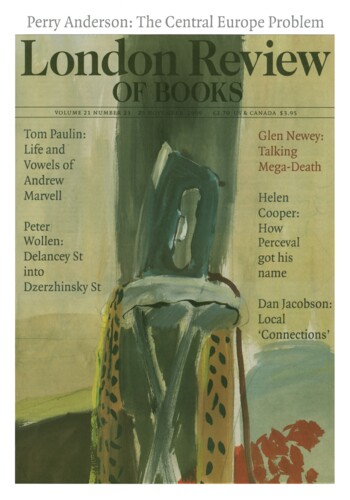Tankishness: Tank by Patrick Wright
Peter Wollen, 16 November 2000
The tank, I was surprised to learn, was a British invention. It provided a much-needed response to the recent development of barbed wire, fortified trenches and rapid-fire machine-guns. Armoured against both wire and gunfire, the tank could lurch across trenches and traverse roadless battlefields pitted with shell craters. I was even more surprised to learn that the tank was developed in the...




